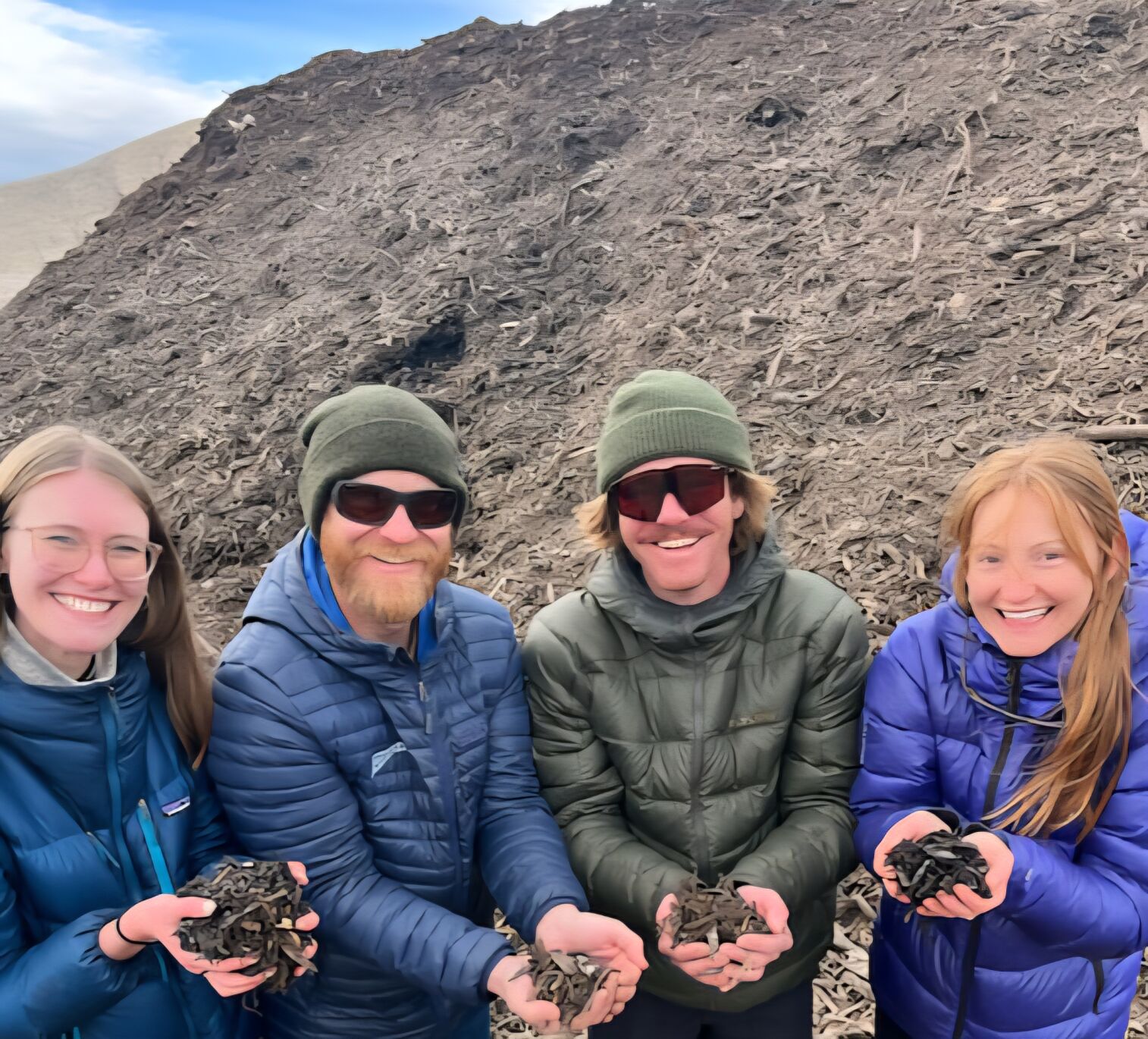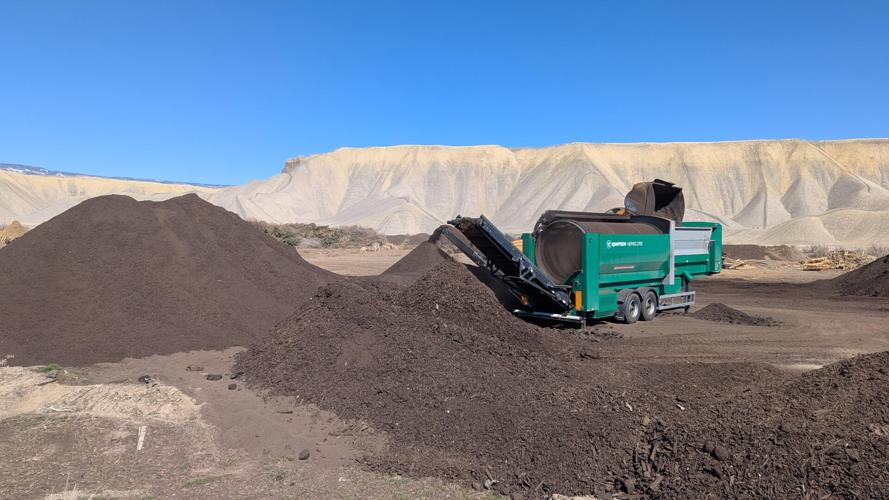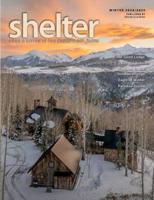Local environmentalists report that half of all waste deposited in regional landfills is compostable. When organic materials mix with landfills, they emit greenhouse gases. Instead of creating pollution, composting generates valuable soil enrichment.
Bruin Waste Management (BWM) launched a local pilot program last year offering weekly compost pick up at commercial sites and HOAs in the Town of Telluride (TOT) and Mountain Village (MV) supported by a grant awarded to San Miguel County (SMC) from a U.S. Department of Agriculture (USDA) Composting and Food Waste Reduction Program.
“Funds have been available for BWM HOA and commercial customers since December,” said TOT’s Sustainability and Grant Administrator Darin Graber. “We’ve seen some uptake at HOAs and more at the Telluride School District which started composting all cafeteria and kitchen waste last month.”
“The grant period ends this summer, so anyone who’s interested should get in touch with BWM so they can apply for an incentive,” Graber added. “Rebates are available for discounts on service fees and for creating or expanding enclosures to accommodate composting receptacles.”
BWM VP Of sales and new market development Rob Kendall said that he believes the local compost pilot has been “a productive learning experience and has exceeded expectations, particularly in terms of low contamination which is often the Achilles’ heel of composting programs.”
With growing participation, BWM currently has around 10 customers who compost weekly, including Telski whom Kendall calls “a fantastic partner.”
BWM hauls TOT’s and MV’s organic waste along with biosolids from the Regional Wastewater Treatment Plant to Delta Compost which then transforms that waste into soil amendment.
Delta Compost receives septic waste, grease trap waste, biosolids, food processing waste from local meat processors, food waste from grocery stores, and food scraps and green waste from local businesses and residents. Most of the waste they compost comes from the Roaring Fork Valley, with the biggest food waste generated by grocery stores.
“The food scraps and compostables that we get from TOT and MV is a tiny percentage of our monthly collections — about two to six tons a month, maybe 1.5% of our total food waste,” said Delta Waste CEO Erica Sparhawk.
Delta Compost recycles the organic waste it receives into affordable, certified compost amendment which it sells to landscaping companies, nurseries, homeowners, farmers and ranchers.
While Dirty Sturdy's out of Ridgway continues to offer local residential composting services, the hope is to one day have a third composting bin for local curbside pick-up.
“Given our experience handling high-volume waste, we felt we could make the most meaningful impact by focusing on larger-scale producers of compostable material,” Kendall said.
Telluride residents have accessed a free compost collection trailer located in the parking lot behind the Butcher & Baker (B&B) since 2019, when the restaurant received a Telluride Green Grant to collect compost from their operations as well as from the public.
“We’re mainly interested in vegetable and plant only waste,” said qualified B&B owner Megan Ossola. “Because our composting program isn’t ‘commercial,’ we can’t take ‘compostable’ packaging, citrus peels, meat, or dairy.”
She said that in addition to her restaurant’s organic waste, at least three other restaurants and a few hundred neighbors access the trailer where, every five days, approximately three cubic yards of compostable material is collected which B&B staff hauls to the Ossala Family Farm in Montrose where the resulting compost amendment enriches the farm’s soil.
According to MV Sustainability and Grant Projects Manager Lauren Kirn, MV operates a composting incentive program for businesses and HOAs offering a 30% rebate on composting invoices, free composting trainings for restaurants, food services and businesses for back-of-house composting, free at-home collection buckets and compostable bags, and free public access to two 30-yard green waste compost bins for landscaping use. These efforts have resulted in diversion of over 36.4 tons of compostable materials from landfills not including food waste diverted from participating MV restaurants which amounts to approximately 80 tons over ten months.
In collaboration with the TOT and SMC, Mountain Village hosts an annual public composting event each November. At last year’s event, Mountain Village diverted 4.5 tons of food waste from landfills, a 125% increase since 2021.
“This shows that composting has significant public support,” said Kirn. “As people become more aware of how to compost, they’ll do it.”
EcoAction Partners (EAP), SMC, BWM, TOT, MV and national nonprofit Zero Foodprint are partnering to celebrate International Composting Week which officially runs from May 4-10.
On Monday, May 5, the Cornerhouse Grille will kick off International Composting Week by hosting compost-themed trivia beginning at 8 p.m.
On Tuesday, May 6, beginning at 8:30 a.m., the Ossala Family Farm Volunteer Day in Montrose will teach people about food sourcing and farm-to-table operations.
Also on Tuesday, May 6 from 5-6:30 p.m., Wilkinson Public Library (WPL) will host a plant and cuttings swap where participants may take home a compost amendment from Delta Compost.
On Wednesday, May 7 from 4:30-5:30 Pinhead, EAP and B&B will host an afterschool student composting workshop at the WPL.
On Thursday, May 8 from 11 a.m.-noon, tour Delta Compost’s facility to learn about compost processing.
To contact BWM about composting, call (970) 864-7531. To learn more about EAP compost programming, visit ecoactionpartners.org.




























Commented
Sorry, there are no recent results for popular commented articles.